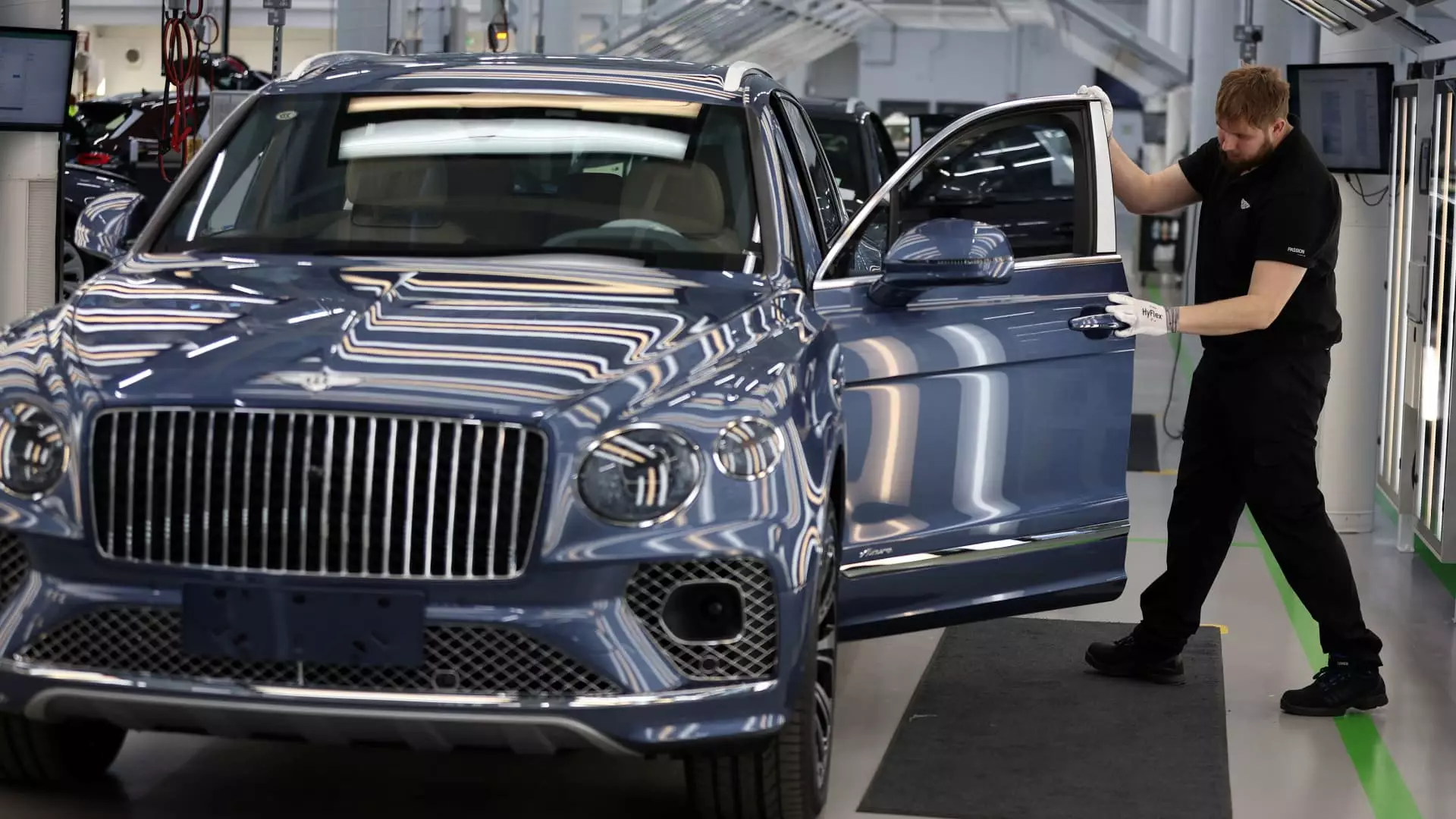Bentley Motors is a name synonymous with luxury and high-performance vehicles, but as the global automotive landscape evolves, it finds itself re-evaluating its trajectory towards full electrification. Initially pledging to provide exclusively all-electric cars by 2030, the British automaker is now adjusting its timeline, pushing the target to at least 2035. This shift reflects not just internal corporate planning, but external pressures from market demands and developmental challenges.
During a recent media event, Bentley’s Chairman and CEO, Frank-Steffen Walliser, candidly expressed that the current customer base exhibits “not a lot of demand” for electric vehicles (EVs). This admission is grounded in the reality that traditional Bentley clientele are not yet ready to embrace a streamlined electric future. As Walliser elaborated, “Legislation for sure, is driving electrification…but also competition,” underscoring that while the regulatory landscape is evolving, consumer readiness must also be factored into their long-term strategy.
In light of these changing market conditions, Bentley has chosen to maintain a dual approach by committing to plug-in hybrid electric vehicles (PHEVs) until the demand for mainstream electric models becomes substantial. This strategic adjustment allows Bentley to cater to existing customers who remain fond of the powerful combustion engines while gradually introducing more electric technologies into their lineup.
Matthias Rabe, Bentley’s head of research and development, noted the company’s commitment to producing PHEVs “as long as markets and customers demand it.” This flexible strategy aims to bridge the gap between current consumer preferences and anticipated future demands, ensuring Bentley remains a relevant player in the ultra-luxury market.
However, Bentley’s ambitions are intertwined with a broader narrative within the automotive industry where traditional internal combustion engines are on a countdown. Walliser acknowledged that even as Bentley continues the PHEV path, the company has not ruled out the possibility of producing vehicles powered exclusively by fossil fuels in the short term, reflecting an inherent tension between innovation and customer loyalty.
The timeline for Bentley’s first fully electric vehicle—a “Luxury Urban SUV”—has also been reevaluated. Currently slated for a 2026 launch, this announcement comes after previous expectations for an earlier production start. Previous CEO Adrian Hallmark, who exited the company just preceding these modifications, pointed to internal challenges, notably software integration and the complexities of adhering to Bentley’s high standards for vehicle architecture, as primary reasons for the delays.
Five years after outlining its future-focused “Beyond100” strategy, Bentley has rebranded this initiative to “Beyond100+,” suggesting an adaptive approach to thrive amid the constantly shifting economic and regulatory climate. This name change signifies not only a broadening of their aspirations but also an acknowledgment of the more flexible, responsive nature required to succeed in today’s automotive market.
With the luxury market undergoing a profound transformation due to the urgency of climate change and consumer shifts toward sustainability, Bentley is keenly aware of its position. Known for its iconic vehicles equipped with powerful 12- and 8-cylinder engines, the transition to EVs marks a significant turning point for the company. Notably, Bentley has already ceased production of its renowned W12 engine to concentrate on hybrid vehicles featuring 8- and 6-cylinder options—an indicative step toward embracing a new technological age.
By prioritizing the development of PHEVs—vehicles that amalgamate traditional internal combustion engines with electric propulsion—Bentley is creating a transitional vehicle category that provides luxury without completely abandoning the brand heritage valued by its customers. As these PHEVs typically allow for substantial electric driving ranges complemented by combustion support, they may serve as a more appealing option for consumers reluctant to commit fully to electric-only platforms.
While Bentley Motors navigates an intricate blend of consumer expectations, regulatory demands, and technological advancements, it is clear that the journey towards electrification is fraught with challenges. The brand intends to honor its legacy while tentatively stepping into the future, ensuring that it remains a leader in the luxury segment as the face of automotive technology continues to evolve. The transition may be gradual, but it is essential for Bentley to orchestrate this metamorphosis carefully, melding tradition with modernity to retain its esteemed status in a rapidly changing marketplace.

